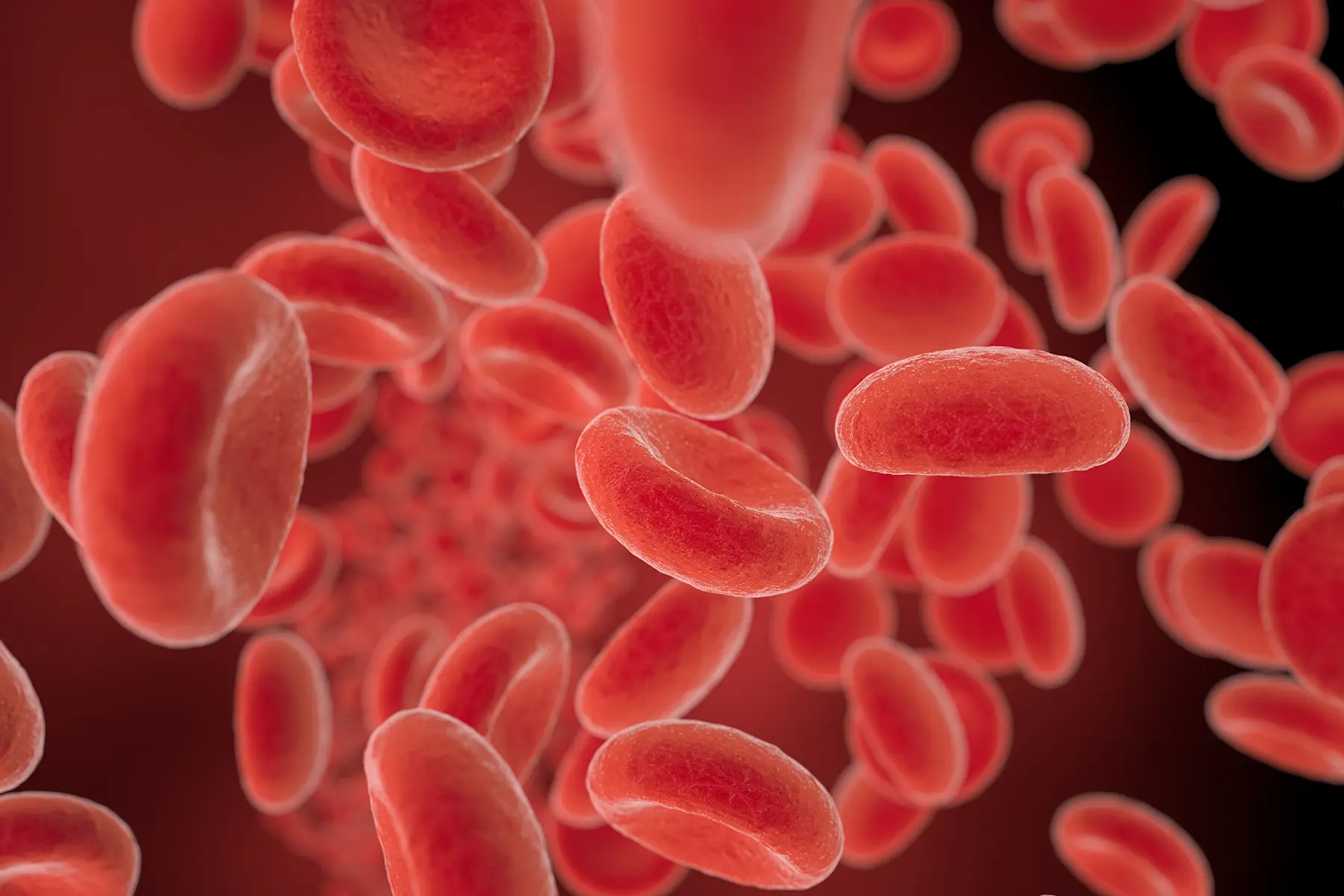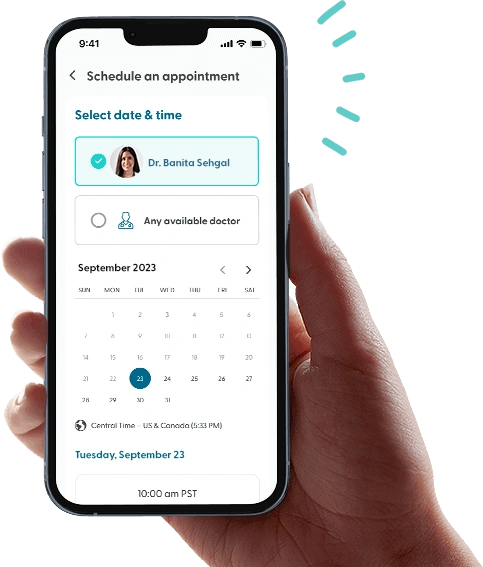A Closer Look at Babesiosis: Causes, Symptoms, and Treatments

As the warmer months approach, spending time outdoors could increase your risk of being bitten by a tick.
A tick bite can spread many different diseases to humans, including an infection called babesiosis.
While the symptoms of babesiosis are often mild — and some people don’t experience any at all — this infection can cause severe illness.
In this article, we’ll provide an overview of babesiosis, including the signs and symptoms you should watch for if you’ve been infected.
What is Babesiosis?
Babesiosis is a disease caused by parasites that infect red blood cells in the body.
These parasites — which are from a species of parasites called the babesia species — are transmitted to humans through a tick bite from the blacklegged tick.
If a tick carrying the babesia parasite becomes embedded in your skin, you may develop human babesiosis.
In some cases, babesiosis can also be transmitted through organ transplants or blood transfusions, although this is rare. It can also be passed from a pregnant mother to her baby during pregnancy or delivery.
Babesiosis may lead to life-threatening complications as the parasite destroys red blood cells, especially if you are at risk for severe symptoms.
Humans can get babesiosis in any area where the ticks and babesia parasites are found. This is primarily in the Northeast and Upper Midwest United States.
What are the Signs and Symptoms of Babesiosis?
The most common signs of a babesia infection are flu-like symptoms.
The incubation period for babesiosis is one to four weeks following a tick bite, so your symptoms may only start then.
Around 25% of adults and 50% of children with babesiosis are asymptomatic, meaning they won’t develop symptoms after being bitten.
Common symptoms of babesiosis include:
Fever, chills, and sweats
When the babesia parasites enter the bloodstream and invade the red blood cells, they start multiplying.
The infection causes blood cells to rupture, releasing parasites into the bloodstream. This triggers an immune response, including the release of proteins called cytokines into the body.
Cytokines can increase the body’s temperature and cause a fever. Chills often accompany a fever as the body adjusts to the increased temperature, and sweating may then occur as the body tries to cool down.
Fatigue
When the body starts fighting the babesiosis infection, it diverts much of its energy toward the immune response, which includes producing more blood cells to combat the parasites.
This diversion of energy can lead to feelings of fatigue.
As babesiosis destroys red blood cells — which carry oxygen to the organs and tissues — there may be decreased oxygen in the body.
Reduced oxygen can cause fatigue as the muscles and other tissues don’t receive enough oxygen to function normally.
Headaches
The release of cytokines and other inflammatory mediators can heighten inflammation throughout the body, including in the brain and its surrounding structures.
This inflammation can lead to swelling and irritation, which may feel like a headache.
Headaches may also be caused by cerebral edema, which is when fluid accumulates around the brain due to the destruction of red blood cells and the blood-brain barrier.
Myalgia
Muscle pain – also known as myalgia – results from the stimulation of nerve endings by inflammatory cytokines released in the body.
Inflammation in the muscle tissues can contribute to sensations of sensitivity and pain.
The reduced oxygen in the blood due to the destruction of red blood cells can also cause muscle pain. This is because the muscle tissues are deprived of oxygen, which they require to function properly.
This can cause pain, cramping, and aching of the muscles. Nausea
The release of cytokines can affect the gastrointestinal system and disrupt the normal digestive process, which could lead to nausea and other gastrointestinal symptoms.
Dark urine
Dark urine results from the breakdown of red blood cells by the babesia parasites through a process called hemolysis.
When the parasites infect and destroy the cells, hemoglobin is released into the bloodstream. Excessive amounts of hemoglobin can overwhelm the body’s ability to process this molecule.
The kidneys cannot filter this excessive amount of hemoglobin, so it is excreted through the urine, giving it a dark color.
Loss of appetite
The cytokines released into the body can affect a part of the brain called the hypothalamus, which regulates appetite. When this area of the brain is impacted, it may suppress a person’s natural appetite.
The purpose of this response is to divert energy from digestion to immune function so that the body can fight off the infection.
Cough
In severe cases of babesiosis, the infection can lead to acute respiratory distress syndrome (ARDS) and other respiratory issues.
The inflammation and fluid accumulation in the lungs associated with these conditions can irritate the airways, which could lead to coughing.
Understanding Severe Babesiosis
Some people may experience more severe disease with serious symptoms.
Depending on the person’s overall health, symptoms of severe babesiosis may persevere for several weeks to months if left untreated.
Symptoms of severe babesiosis include:
- Neck stiffness
- Mood changes
- Abdominal pain
- Severe nausea and vomiting
- Shortness of breath
- Pale skin
- Jaundice, which is the yellowing of the skin or eyes
Only one in every 10 people hospitalized for babesiosis will die from the disease.
The Risk Factors for Babesiosis
Certain individuals have a higher risk of developing a severe form of babesiosis, which can lead to complications.
Risk factors for babesiosis include:
-
A weakened immune system: Individuals with a compromised immune system caused by conditions like HIV/AIDS and cancer, or certain medications.
-
Spleen health: People without a spleen or those with medical conditions that impact the spleen.
-
Age: People older than 60 are at risk, as the immune system often weakens with age. They may also have reduced spleen function or chronic health conditions that make them vulnerable to infection.
People with a higher risk of infection can have this illness for months or even years. They may also experience a relapse, which is when symptoms intially improve but then worsen again later.
The Complications of Babesiosis
In severe cases, patients with babesiosis may develop complications as a result of the infection. The complications associated with babesiosis include:
-
Heart conditions: Parasites can destroy blood cells to the point where the body can’t produce new ones to replace them, known as hemolytic anemia. This can result in heart conditions, including heart failure.
-
An enlarged spleen: The spleen has to work harder to process old and damaged red blood cells when the body is infected with babesiosis. This can lead to inflammation and congestion, which can make the spleen swell or rupture.
-
Fluid on the lungs: Known as pulmonary edema, babesiosis can cause fluid accumulation in the lungs, which can severely impact breathing.
-
Organ damage or failure: The kidneys and other organs are directly affected by the infection and may become compromised. This can result in acute kidney injury, renal failure, and liver failure.
How Is Babesiosis Diagnosed?
To diagnose babesiosis, your healthcare provider will run blood tests.
These will be used to detect babesiosis in your body and rule out Lyme disease, another tick-borne illness with similar symptoms.
Your doctor will also carry out a physical exam and discuss your symptoms with you.
It’s important to let your healthcare provider know if you’ve recently visited an area where you could’ve been bitten by a tick, even if you’re unsure whether you’ve actually been bitten.
You also need to let your doctor know if you’ve had a blood transfusion in the past.
How is Babesiosis Treated?
A healthcare professional will likely treat your condition with a combination of medications, including:
Antiprotozoals such as mepron, flagyl, and alinia Antibiotics such as doxycycline and zithromycin Antimalarial drugs such as a course of atovaquon alongside zithromycin
Key Point: Why Antimalarial Drugs?
Babesiosis may be treated with antimalarial drugs as the parasites that cause the infection are similar to those that cause malaria.
Both types of parasites impact red blood cells and drugs that disrupt this in malaria patients may help with babesiosis.
You’ll likely take these medications in tablet form. However, if you have severe babesiosis, you may receive these medications intravenously.
Depending on the severity of your illness, you may also need a procedure to help manage your symptoms. Treatments used in cases of babesiosis include:
-
Blood transfusions: If you don’t have enough red blood cells, you may receive a transfusion to increase the amount in your body.
-
Ventilation: If the disease is making it difficult for you to breathe, you may be put on a mechanical ventilator to help your body perform this function.
-
Dialysis: If your kidneys are impacted by the illness, dialysis will perform the functions of your kidneys.
What is the Outlook and Prognosis for Babesiosis?
Babesiosis typically lasts one to two weeks. If you have a healthy immune system, you shouldn’t experience any symptoms beyond this period.
If you’re taking medication for babesiosis, your symptoms should improve in around two days.
You may feel fatigued for several months as you recover. However, once your red blood cell counts return to normal, you should feel less tired.
Where Can I Learn More About Babesiosis?
While LifeMD doesn’t provide treatment for babesiosis, we can still support you during your recovery.
A team of healthcare professionals can assist with managing your symptoms if you have a mild form of the illness. We can also provide medical advice to help you recover comfortably.
Make an appointment today to get started.
More articles like this
Feel better with LifeMD.
Your doctor is online and ready to see you.
Join LifeMD today and experience amazing healthcare, discounted labs and prescription medications... plus around-the-clock access to medical guidance.



